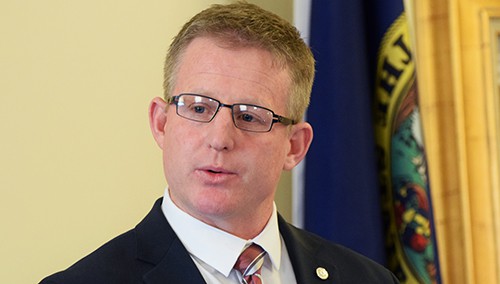


I thought a number of the debates surrounding Medicaid expansion were put to bed in 2015. But, after hearing Boise Democrat Rep. Mat Erpelding’s pitch for Medicaid expansion, I guess not.
Erpelding believes that Idaho taxpayers pay federal taxes for an expanded Medicaid program that they don’t use. Well, they aren’t.
The expansion of Medicaid by Idaho, or any state that has not yet done so, would be funded by incremental spending. Remember, Medicaid spending is not discretionary, it does not “compete” with other programs. The expansion would be, simply stated, funded by new federal spending.
If the federal government ran a budget surplus, Erpelding might have a point – but with the continuous deficits the government runs he is not correct in his assertion that we are paying taxes for something we are not getting. When you already have an ongoing annual deficit, the money for incremental spending is borrowed money. So Idahoans are not paying taxes for incremental spending, it comes from borrowed money.
In 2015, Idaho Department of Health and Welfare Director Richard Armstrong presented his “Healthy Idaho” plan for Medicaid expansion. He detailed $173 million in savings over the next decade. However, there are three significant weaknesses in his argument.
The savings for the state are all front-loaded. To achieve the savings, the federal government must pick up more than 90 percent of the expansion cost. At just 90 percent the expansion is break-even to cost-negative for Idaho taxpayers. The assumption that the federal government can, or will, continue indefinitely to pay 90 percent of the expanded program is risky given that the federal government is $19 trillion in debt.The situation is far riskier, and the $19 trillion figure much higher, when you include the federal government's unfunded liabilities for Social Security, Medicare and Medicaid, whose benefits are implicitly promised to aging U.S. babyboomers.
The federal government traditionally has funded Medicaid in Idaho at roughly 70 percent of program costs. Ironically the state picks up more of the tab for the traditional Medicaid patient then is proposed for the expanded population. Should the debt-ridden federal government move to equalize the cost sharing Idaho will stare at a huge tax bill.
As the Idaho Freedom Foundation pointed out last session, legal experts doubt that a state that expands Medicaid can scale the program back if the federal cost-sharing formula changes – without jeopardizing the entire $1 billion plus that the federal government contributes to Medicaid in Idaho each year. In the Obamacare case, NFIB v. Sebelius, the U.S. Supreme Court ruled the federal government cannot condition the first dollar of existing Medicaid coverage upon a state's decision whether to opt into expansion. However, the court did not rule on the question: can the feds add conditions after a state expands the program. This leaves state taxpayers with great exposure.
Risking all Medicaid funding by adding able-bodied, working adults to the program could leave Idaho taxpayers with two poor choices: end Medicaid, or pitch in millions more to cover program costs, which would likely mean cuts to other programs at the very least.


